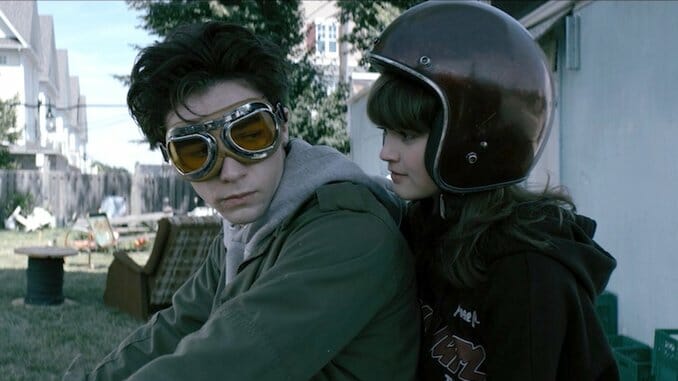Jonesing for John Wick or John Hughes? Wayne Is Ready to Blow Up Your Weekend
Our only question for Wayne’s new Amazon overlords: Second season when??
Photos Courtesy of YouTube Premium
“Listen, you can call me whatever you want. You don’t have to like me, but I like you, and … I want to do good stuff. So I hope you let me help you.” — Apropos of nothing at all, Del’s student council election speech (“Chapter Five: Del”)
The last time I took to the Paste TV trenches to write at any length about Wayne, it was January of 2019. The first season of Shawn Simmons’ knuckle-bruising teen dramedy had just dropped on YouTube Premium, and between it, Sex Education, and Deadly Class (RIP), it was pretty obvious something Hughesian was on pop culture’s collective mind. Hell, even grown-ish made its first major promo campaign a full Breakfast Club jam.
At the time, a mini-boom like this made a kind of epitaphic sense: 2019 marked a decade, after all, since John Hughes had died; the timing was ripe for some choice nostalgia. And yet, given how utterly and indeed pummeling the loudest of these updates ended up being—Netflix’s batshit zombie comedy Daybreak, which would debut and in short order be canceled later that fall, absolutely included—a more complicated explanation seemed in order. My guess? That modern American culture had so thoroughly rotted, the TV-making adults who grew up with The Breakfast Club and Ferris Bueller’s Day Off were ready to drag us all head-first into the vicarious catharsis of the next generation’s fictional teens blowing our bullshit to kingdom come.
Well, it’s nearly two years later. Whatever Hughesian boom there might have been is over, YouTube Premium is effectively (if not technically) out of the scripted content game, and we’re still (at least) 69,619,556 votes short of burning out the toxically selfish rot at the heart of our national experiment.
One thing we do still have, though? A Wayne.
Better yet, thanks to an eleventh-hour streaming rights bid from Prime Video, a larger audience than ever is about to have a Wayne. Even better still, should that audience fall in love with Wayne the same way Del, Orlando, Principal Cole, and most especially I have, we’ve even got a chance we might have a Wayne for years to come.
So, yes—this is a review of a show that’s nearly two years old. And yes, we’ve all got a lot distracting us, this weekend of all weekends. But I am telling you: If there are better ways to channel your end-of-2020 anxiety than taking a Cameron Frye cannonball straight into Wayne’s exquisite first season, I genuinely can’t think of them.
That established: What, the f***, is a Wayne?
-

-

-

-

- Curated Home Page Articles By Test Admin October 21, 2025 | 3:10pm
-

- Curated Home Page Articles By Test Admin October 21, 2025 | 2:57pm
- Urls By Test Admin October 21, 2025 | 2:57pm
- Curated Home Page Articles By Test Admin October 21, 2025 | 2:55pm
-

-

-

-

-

-

-

-

-

-

-

-

-

-

-

-

-

-

-

-

-

-

-

-

-

-

-

-

-

-

-




































